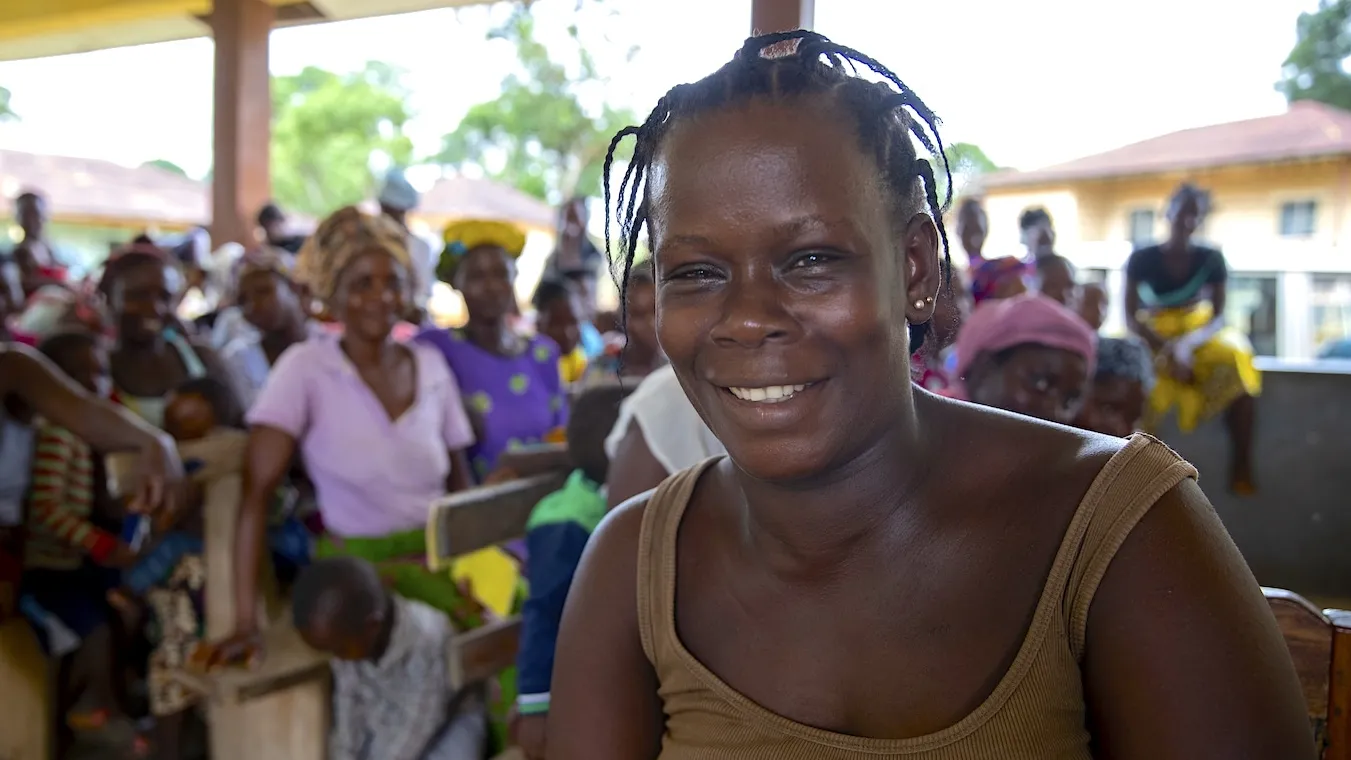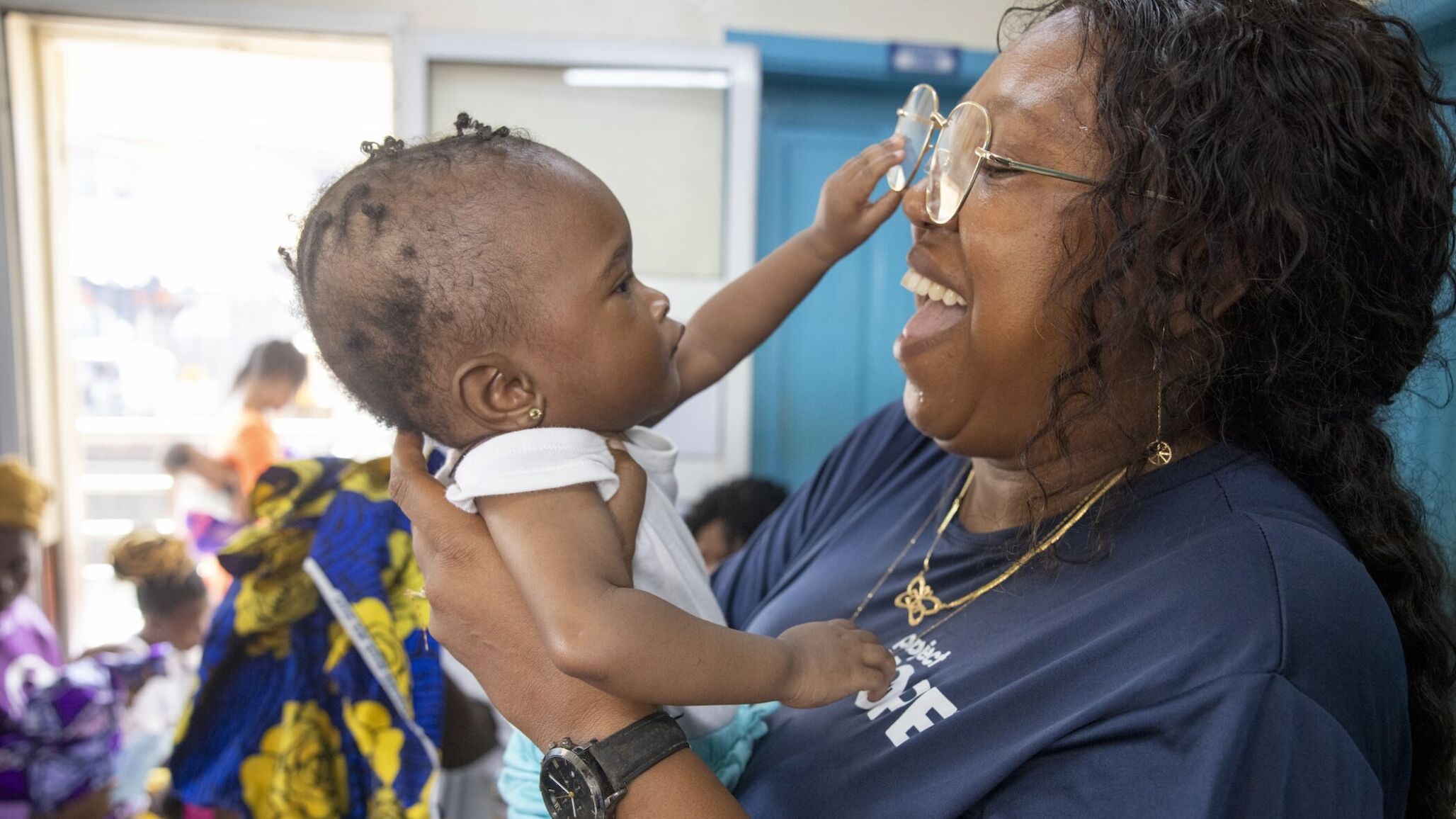Women Carry An Undue Mental Health Burden. They Shouldn’t Have To.
Like so many other global health issues, the burdens of mental health fall hardest on women. Building a more equitable world means acknowledging — and addressing — that gap.

This month is Mental Health Awareness Month — a movement that takes me back to the time I spent in my home country, Lebanon, after the massive Port of Beirut blast in August 2020.
One day, as I passed by a group of mothers and young children sharing their regular daily news and chit-chat, I couldn’t help but notice the number of signs that these women were experiencing distress and potential mental health issues. One of them shared her inability to sleep at night, another mentioned her kids’ involuntary urination episodes, and another was constantly hearing glass shattering noises.
It was then I realized that we were facing a mental health crisis on top of all the other crises in the country. My eyes were open to the widespread need for high-quality mental health services — especially for women and children.
Although it is not commonly known, gender can be a determinant when it comes to mental health. Remarkable gender differences are found in the patterns of mental health disorders. Common risk factors that increase a woman’s risk of developing mental health disorders include gender-based violence; a lower socioeconomic status due to low income and income inequality; a lower social status including subordination; holding the continuous duty of being a caregiver to other family members; stressful gender-based roles; discrimination; abuse; and other stressors and life events.
By 2020, depression — which is twice as prevalent in women — was predicted to be the second leading cause of the global disability burden. In addition, women are the largest group affected by post-traumatic stress disorders, which is the direct result of the high rate of sexual violence women experience: Nearly 1 in 5 women suffer from rape or attempted rape in their lifetimes. Not to mention that violence, wars, and disasters disproportionately impact women and children.

In developing countries, there is a huge gap in the availability and accessibility of specialized mental health services. Rather than visiting mental health specialists, women are more likely to seek mental health support in primary health care settings while accompanying their children or while attending consultations for other health issues. This leads to many mental health conditions going unidentified and therefore not treated. Often, women do not feel fully comfortable disclosing certain psychological and emotional distress because they fear stigmatization, confidentiality breaches, or not being taken seriously.
COVID-19 has put the mental well-being of the entire world at risk. More adults are reporting struggles with mental health and substance use and are experiencing more symptoms of anxiety and depressive disorders. The stressors caused by the pandemic have affected the entire population; however, the effect on women and on mothers specifically has been greater.
Women, the unsung heroes of the pandemic, face mounting pressures amid this global health crisis. Reports suggest that the long-term repercussions of COVID-19 could undo decades of progress for women and impose considerable additional burdens on them, threatening the difficult journey toward gender equality.

Unemployment, parenting responsibilities, home schooling, or caring for sick relatives are all additional burdens on women’s daily lives during the pandemic. It’s also important that we acknowledge the exponential need for mental health support for health care workers, and particularly health care mothers, who are juggling both their professional duties and their parenting responsibilities. They are the heroes on the front lines of the fight against the virus, and it’s crucial to prioritize their physical as well as their mental health. Acknowledging the massive need for this support, Project HOPE is implementing Mental Health Resilience Training sessions in different countries across the globe targeting health care workers responding to COVID-19. More than 75% of the health care workers participating in the training sessions are women.
More research is needed to understand the mental health issues of specific groups, including women, and to identify protective factors to help maintain their well-being. Additional awareness programming is also important to decrease the stigma around mental health, normalize the topic, and encourage support-seeking behaviors. It has been shown that the availability of high-quality mental health services at the primary health care level is the most efficient way to target all the vulnerable populations who are most in need of mental health services. In terms of policy-making, we still have a long road of advocacy ahead to improve existing mental health policies and for lawmakers to deal with mental health as a priority. Although the road may be rocky, there is always light at the end of the tunnel.



